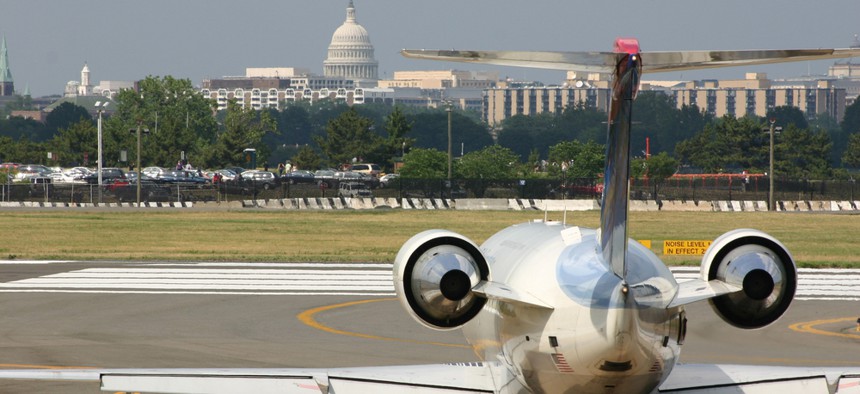
Image via Douglas Litchfield/Shutterstock.com
Sick of Political Fisticuffs? Blame The Jet Plane
Would you believe the airplane is partly to blame for the partisan stalemate?
Notes from the Research Desk highlights the best practices, salient data and emergent perspectives uncovered by the Government Business Council’s (GBC) team. Each week, Research Manager Dana Grinshpan will share the discoveries most important to federal managers.
Every time election season rolls around there are always a slew of news articles and op-ed pieces that claim partisan politics in America is the worst it has ever been. Although I wouldn't touch that argument with oven mitts, the discussion has led me to wonder, what lessons can be learned from all the partisan rancor? More specifically, what has political infighting taught us about team building? Sound like a stretch? It’s not.
I.M Destler, an author affiliated with the Peterson Institute for International Economics makes an incredibly bold argument in one of his books: the polarization of politics in the United States is attributed to four main factors: the shift of political ideology in the 1960s, gerrymandering that has allowed political parties to shore up support, the rise of activist cause groups, and the invention of the jet plane. Yes, the jet plane.
For the sake of brevity, I'll skip three out of four of these mechanisms, although they deserve discussion. Instead, I am kind of stuck on this idea that the jet plane is a partial mechanism for what looks like the downfall of the Congressional bromance.
Before the proliferation of the jet plane, travel between the Congressional Districts and Washington, D.C was costly or impossible for short-term trips. Therefore, legislators would live together in Washington throughout much of the year. Because law-making was a time consuming venture, Congressmen and women were forced to socialize with one another and often they formed friendships with people in other parties. Jet planes, however, made traveling easier and more efficient. Now, a legislator’s schedule has become a non-stop rush from one meeting to the next, thus eliminating any time for cultivating relationships with other party members.
So what does this teach us about team building you ask?
- Slow down. Just recently, an article on Excellence in Government argued that studies have shown that trying to do too many things at once can actually curtail your progress in accomplishing your goals. Try a slow-down technique. Maybe smelling the roses will give you some perspective and much needed relaxation (ahem, Congress).
- Mingle with your colleagues. Yes, you are busy, but let’s face it there is no “I” in team . Instead of emailing your colleague, go over and talk to them today. So many email instructions get lost in translation, you would be surprised how much easier things are when you speaking to someone face-to-face.
- Veto, don’t filibuster. Arguing for the sake of arguing is typically not helpful. If you are in a position of leadership, guide your deputies to fight for their teams and if the fighting gets out of hand. Stop it, hit the reset button, and try driving a more fruitful discussion.
What team building exercises should Congress try? Do I smell a new law coming?
(Image via Douglas Litchfield/Shutterstock.com)
Want more Excellence in Government? Follow us on Twitter | Facebook | Google + | LinkedIn







